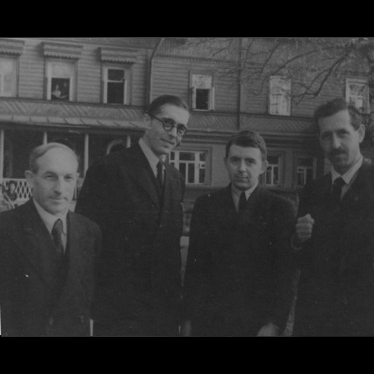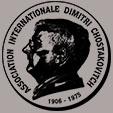Étiquette : Fritz Reiner
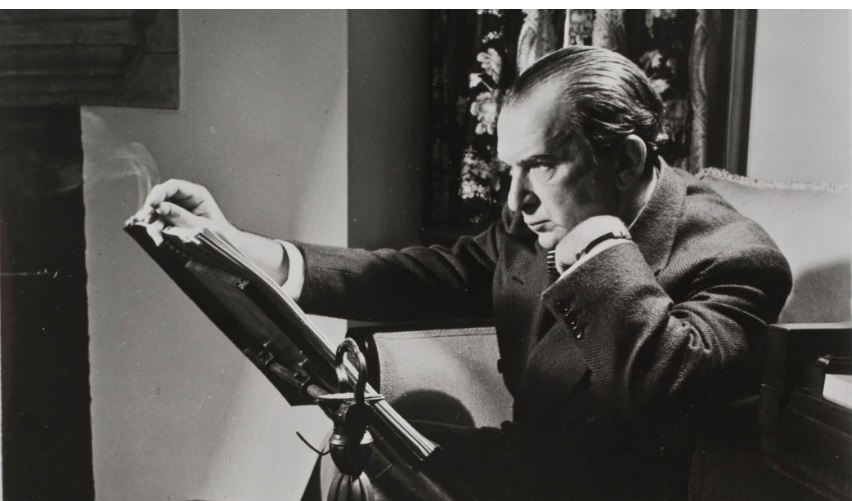
Fritz Reiner Chicago Symphony Orchestra (CSO)
Mozart Symphonie n°41 K.551
Chicago Orchestra Hall – April 26, 1954
Source Bande/Tape DCS-10: 2 pistes/19 cm/s / 2 tracks /7.5 ips STEREO
En octobre 1953, RCA a commencé à effectuer des enregistrements stéréophoniques expérimentaux en utilisant un magnétophone stéréo référencé RT-11 développé à cet effet par RCA. Les enregistrements stéréo de ‘Heldenleben’ et ‘Also sprach Zarathustra’ de Richard Strauss, réalisés à Chicago respectivement le 6 et le 8 mars 1954, ayant été un coup de maître, RCA a, très rapidement, commencé à les utiliser pour lancer la publication de bandes magnétiques stéréophoniques pré-enregistrées (ECS-1 en septembre 1954 pour ‘Also sprach Zarathustra’ et FCS-2 en juin 1955 pour ‘Heldenleben’). Les autres enregistrements réalisés à cette époque n’ont pas tardé à suivre, dont, en avril 1956, sous la référence DCS-10, cette symphonie de Mozart enregistrée le 26 avril 1954. Le catalogue de juillet 1957 témoigne de l’intérêt suscité par cette nouvelle technique.
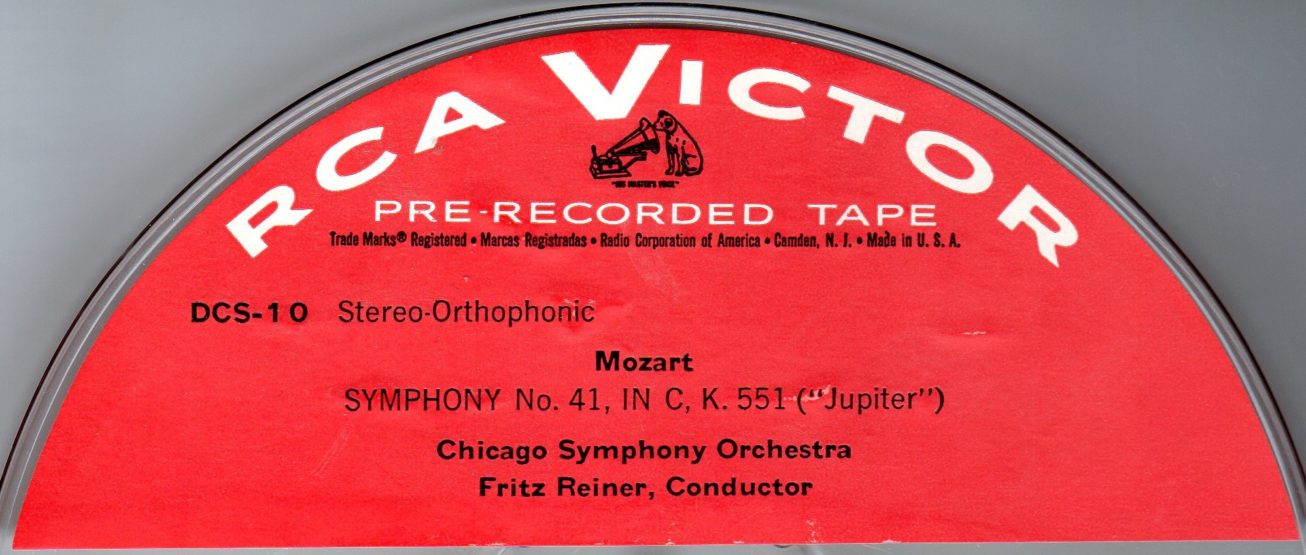
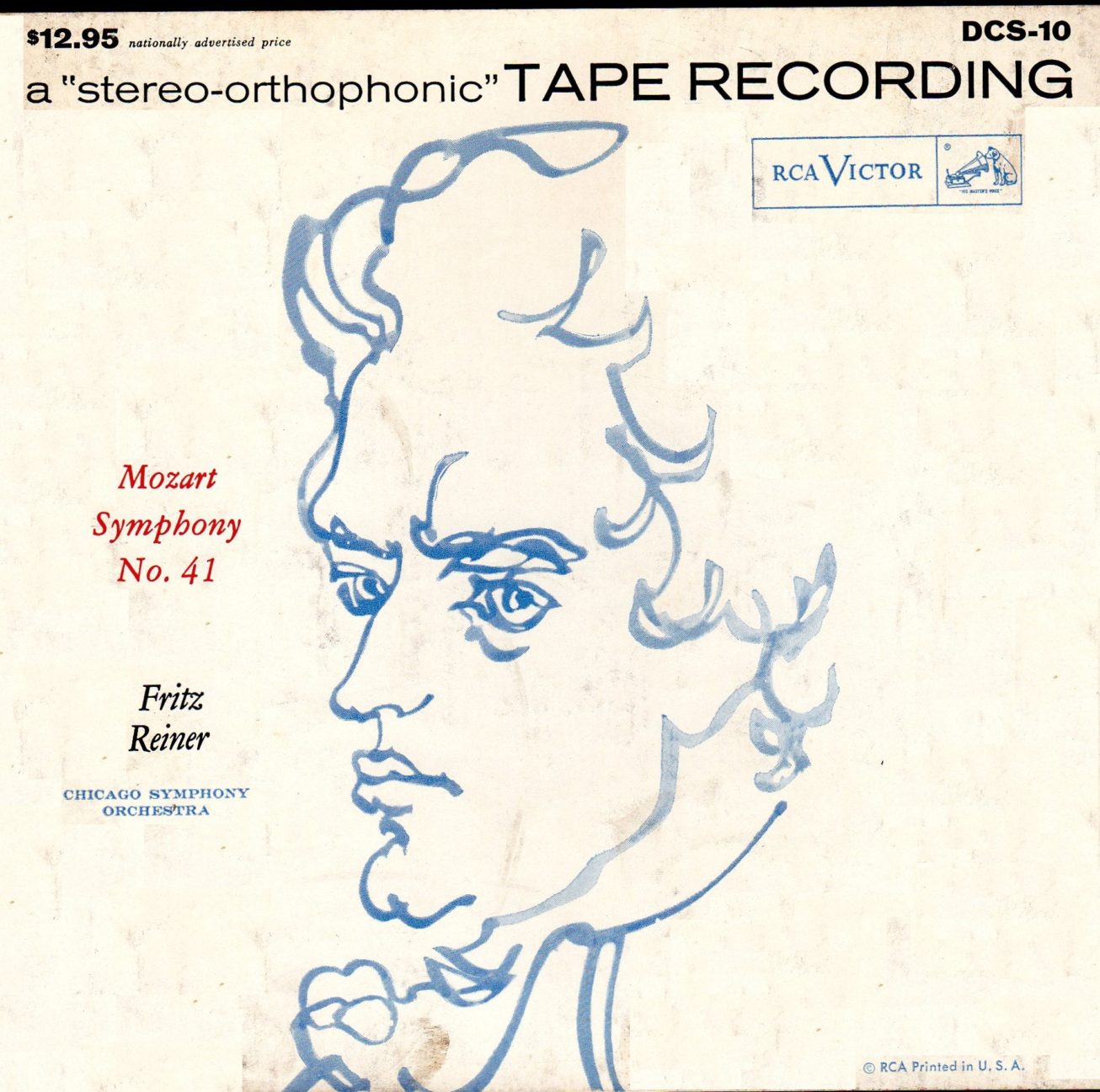
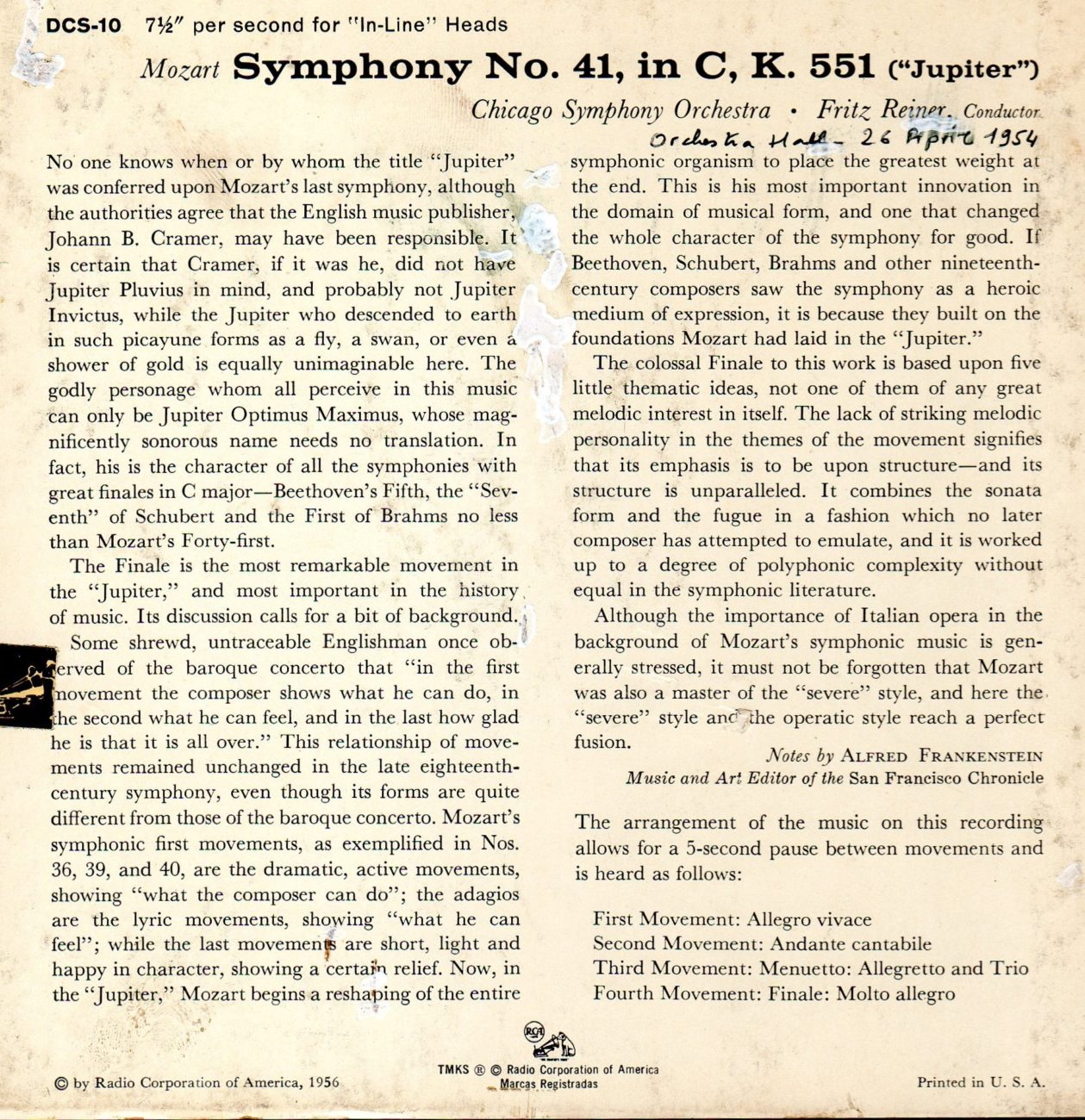
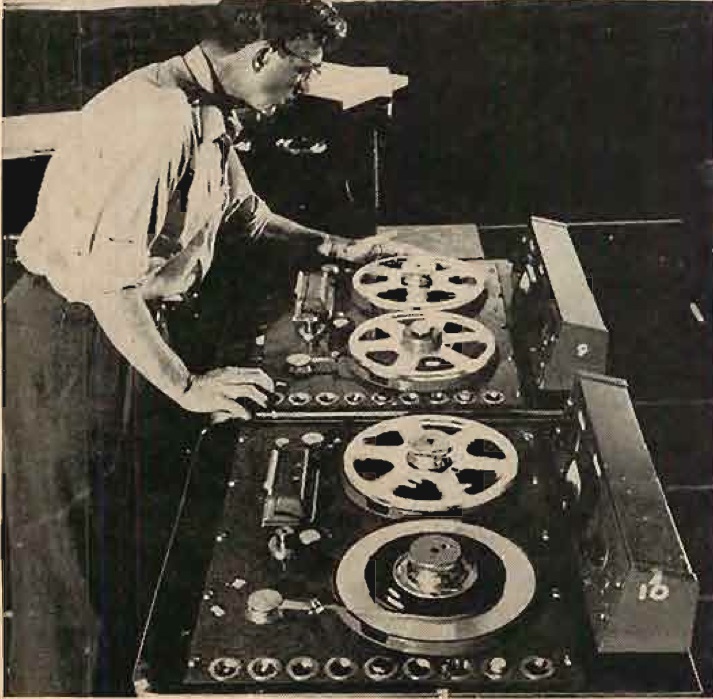
RCA Victor’s first two-track stereo recorders Model RT-11 (1954)
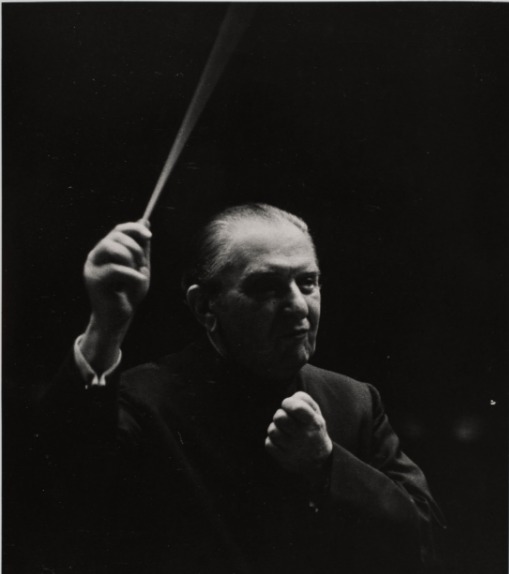
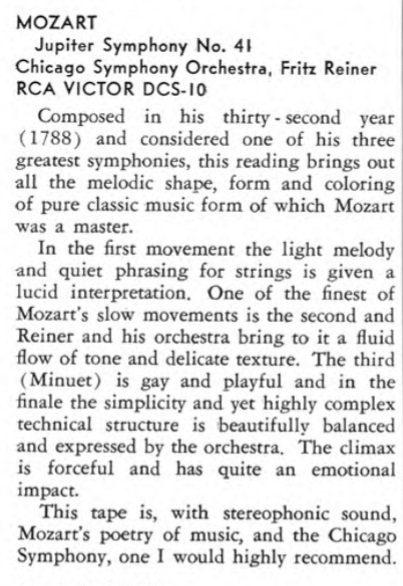 Tape-Recording – October 1956 Review Tape DCS-10
Tape-Recording – October 1956 Review Tape DCS-10
In October 1953, RCA began making experimental stereophonic recordings using a stereo tape recorder, RT-11, developed by RCA for this purpose. The stereo recordings of Richard Strauss’s ‘Heldenleben’ and ‘Also sprach Zarathustra’, made in Chicago respectively on March 6 and 8, 1954, were a masterstroke, and RCA very quickly began using them to launch the publication of pre-recorded stereophonic magnetic tapes (ECS-1 in Septembre 1954 for ‘Also sprach Zarathustra’ and FCS-2 in June 1955 for ‘Heldenleben’). The release of the other recordings made at this time soon followed including, in April 1956, under the reference DCS-10, this Mozart symphony recorded on April 26, 1954. The July 1957 catalog testifies to the interest aroused by this new technique.
Les liens de téléchargement sont dans le premier commentaire. The download links are in the first comment
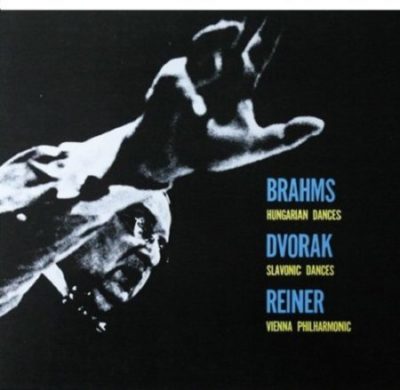
Fritz Reiner Wiener Philharmoniker (WPO)
Dvořák Slavonic Dances Op.46 n°1, 3 & 8; Op.72 n° 2 & 1
Brahms Hungarian Dances n° 5, 6, 7, 12, 13, 19, 21 & 1
Enr/Rec: Wien Sofiensaal 12, 13, 16 & 19 Juni 1960
Prod: Erik Smith – Eng: James Brown
Source: Bande /Tape: LCL-80069 (4 pistes 19 cm/s / 4 tracks 7.5 ips)

En 1960, Fritz Reiner, dans le cadre des accords entre les firmes RCA et Decca, est venu à Vienne sans donner de concert ni diriger à l’Opéra, mais seulement pour enregistrer le Requiem de Verdi, ainsi que ce disque de danses de Brahms et de Dvořák, dans lequel il se montre un maître incomparable avec une subtilité rythmique vraiment fascinante.
L’étude de la période du 12 au 19 juin 1960 montre que le plan de charge de l’orchestre (comme montré ci-dessous) était incroyablement chargé, mais fort heureusement, cela n’a pas affecté la qualité des exécutions de ces danses.
Le terme WPO désigne on le sait la formation de concert de l’Orchestre du Wiener Staatsoper dont l’effectif important permet d’assurer plusieurs prestations simultanées (Opéra, Ballets, enregistrements).
Concernant les enregistrements, Reiner a complété les 12, 13, 16, 19 & 26 juin le Requiem de Verdi commencé en mai, et entre le 12 et le 20 Herbert von Karajan a enregistré une intégrale du Fledermaus de Johann Strauss.
Pour les concerts: les 18 et 19 juin, Mahler Das Lied von der Erde sous la direction de Karajan avec Fritz Wunderlich et Hilde Rössel-Majdan.
Pour l’Opéra: le 12 et le 14 Götterdämmerung (Karajan); le 13 Aïda (Molinari-Pradelli); le 15 et le 17 Arabella (Keilberth le 15 et Hollreiser le 17); le 16 Ballo in Maschera (Molinari-Pradelli); le 18 Entführung aus dem Serail (Krips à la Redoutensaal) / Carmen (Matacic).
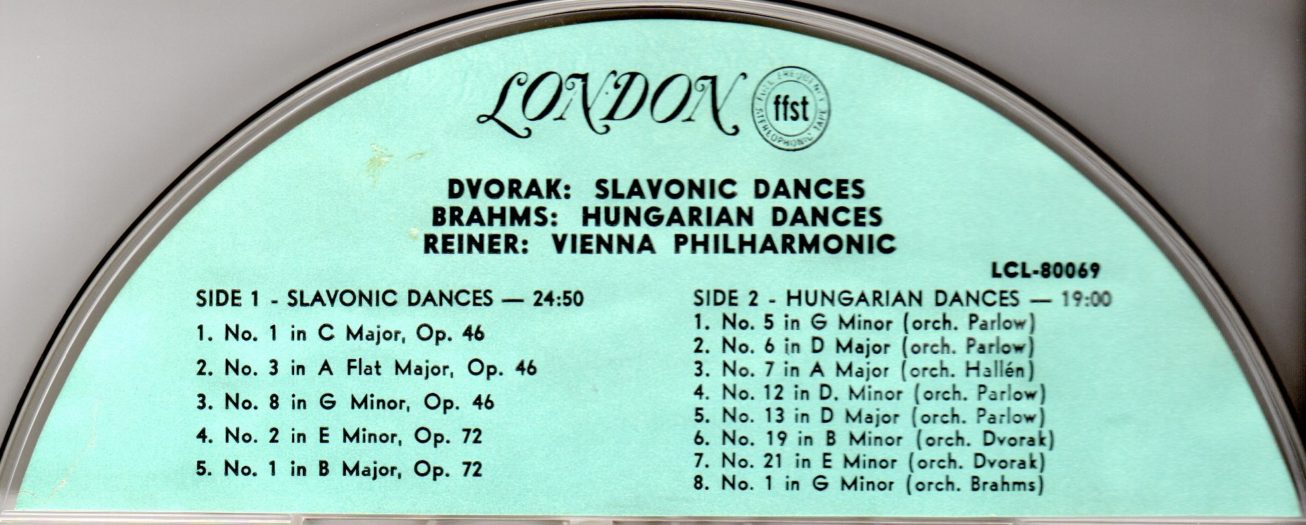
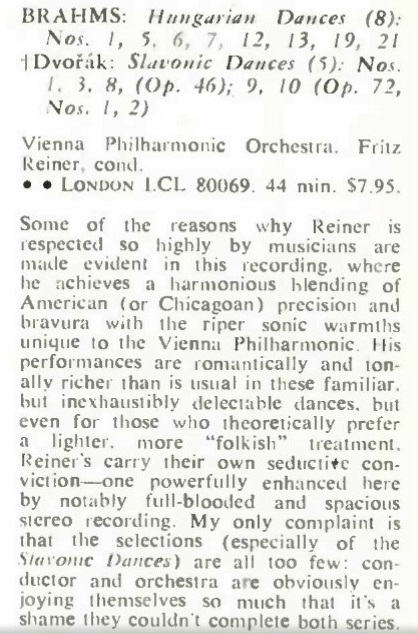
High Fidelity (July 1961)
In 1960 Fritz Reiner, as part of the agreements between RCA and Decca, came to Vienna without giving a concert or conducting at the Opera, but only to record Verdi’s Requiem and this disc of dances by Brahms and Dvořák, in which he shows himself to be an incomparable master with a truly fascinating rhythmic subtlety.
A study of the period from 12 to 19 June 1960 shows that the workload of the orchestra (as shown below) was incredibly heavy, but fortunately this did not affect the quality of the recorded performances of these dances.
The term WPO refers to the concert orchestra of the Vienna State Opera Orchestra, whose large number of members makes it possible to give several performances at the same time (opera, ballets, recordings).
Concerning the recordings, Reiner completed Verdi’s Requiem on 12, 13, 16, 19 & 26 June, which he had begun in May, and between 12 and 20 June Herbert von Karajan recorded the complete Fledermaus by Johann Strauss.
For the concerts: on 18 and 19 June, Mahler’s Das Lied von der Erde under the direction of Karajan with Fritz Wunderlich and Hilde Rössel-Majdan.
For the operas: on June 12 and 14, Götterdämmerung (Karajan); on June 13, Aida (Molinari-Pradelli); on June 15 and 17, Arabella (Keilberth on the 15th and Hollreiser on the 17th); on June 16, Ballo in Maschera (Molinari-Pradelli); on June 18, Entführung aus dem Serail (Krips at the Redoutensaal) / Carmen (Matacic).


